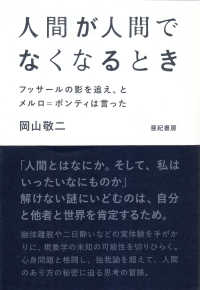Full Description
A high-ranking official in the Imperial War Office in Vienna, Raphael Georg Kiesewetter (1773-1850) is better known for his musicological activities. An accomplished amateur musician, he studied with Albrechtsberger, hosted private concerts of early music, and was closely involved in the affairs of Vienna's Society of the Friends of Music. His important collection of scores is now in the Austrian National Library. He also wrote a number of books and articles, including a pioneering study of Arabic music which was the first to use original sources, owing to the assistance of orientalist Joseph von Hammer-Purgstall. Originally published in German in 1834 and reissued here in its 1848 English translation, the present work is considered Kiesewetter's most significant and remains accessible to the general reader. Based on an evolutionary approach influenced by the Enlightenment, the book presents seventeen epochs which are named after their most characteristic composers.
Contents
Translator's preface; Author's dedication; Introduction; 1. Epoch of Hucbald; 2. Epoch of Guido; 3. Epoch not distinguished by the name of any particular individual; 4. Epoch of Franco; 5. Epoch of Marchettus and De Muris; 6. Epoch of Dufay; 7. Epoch of Ockenheim; 8. Epoch of Josquin; 9. Epoch of Willaert; 10. Epoch of Palestrina; 11. Epoch of Montiverde; 12. Epoch of Carissimi; 13. Epoch of Scarlatti; 14. Epoch of Leo and Durante; 15. Epoch of Gluck; 16. Epoch of Haydn and Mozart; 17. Epoch of Beethoven and Rossini; Appendix of notes; Correspondence with the author; Supplement.







